Abstract
OBJECTIVE: To explore the effects of community-level factors on access to any behavioral health care and specialty behavioral health care. DATA: Healthcare for Communities household survey data, merged to supplemental data from the 1990 Census Area Resource File, 1995 U.S. Census Bureau Small Area Estimates, and 1994 HMO enrollment data. STUDY DESIGN: We use a random intercept model to estimate the influences of community-level factors on access to any outpatient care, any behavioral health care conditional on having received outpatient care, and any specialty behavioral health care conditional on having received behavioral health care. DATA COLLECTION: HCC data were collected in 1997 from about 10,000 households nationwide but clustered in 60 sites. PRINCIPAL FINDINGS: Individuals in areas with greater HMO presence have better overall access to care, which in turn affects access to behavioral health care; individuals in poorer communities have less access to specialty care compared to individuals in wealthier communities. CONCLUSIONS: Our findings of lower access to specialty care among those in poor communities raises concerns about the appropriateness and quality of the behavioral health care they are receiving. More generally, the findings suggest the importance of considering the current status and expected evolution of HMO penetration and the income level in a community when devising health care policy.
Full text
PDF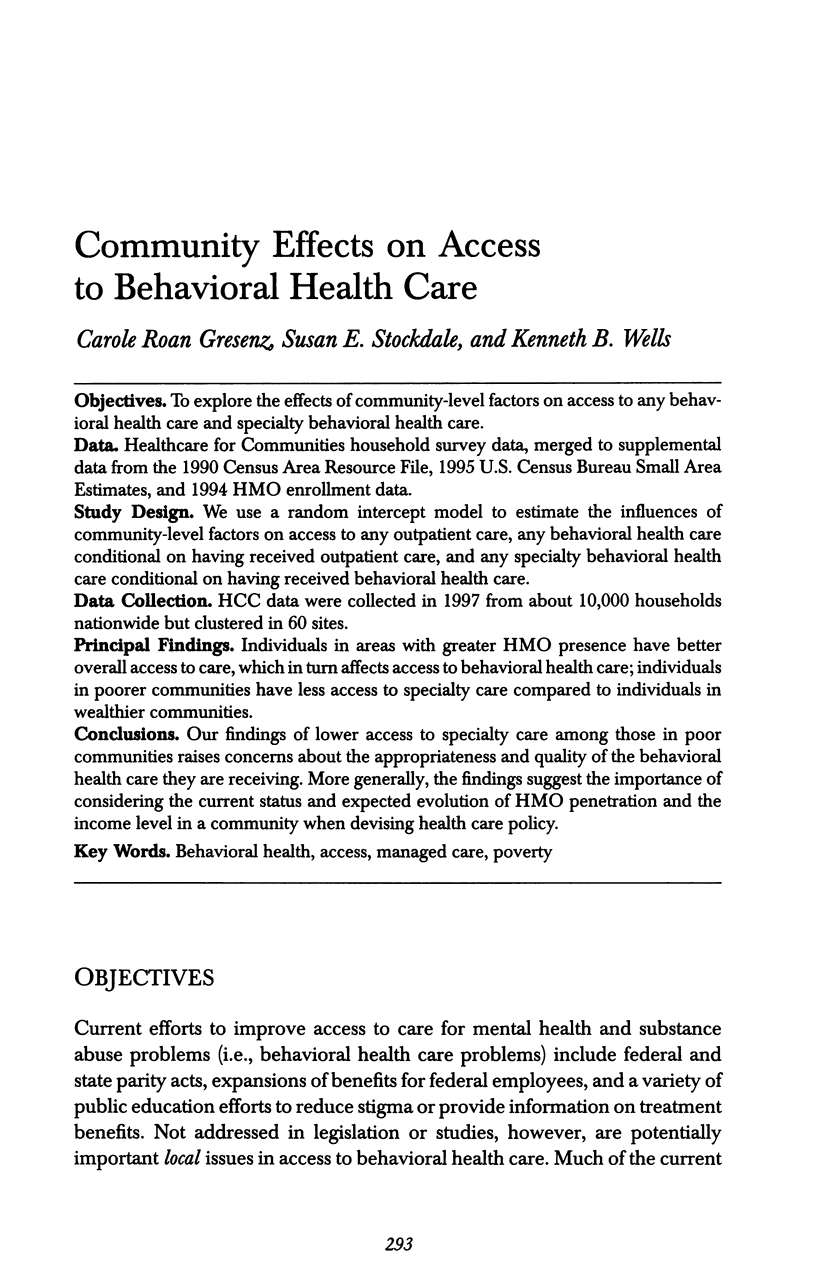
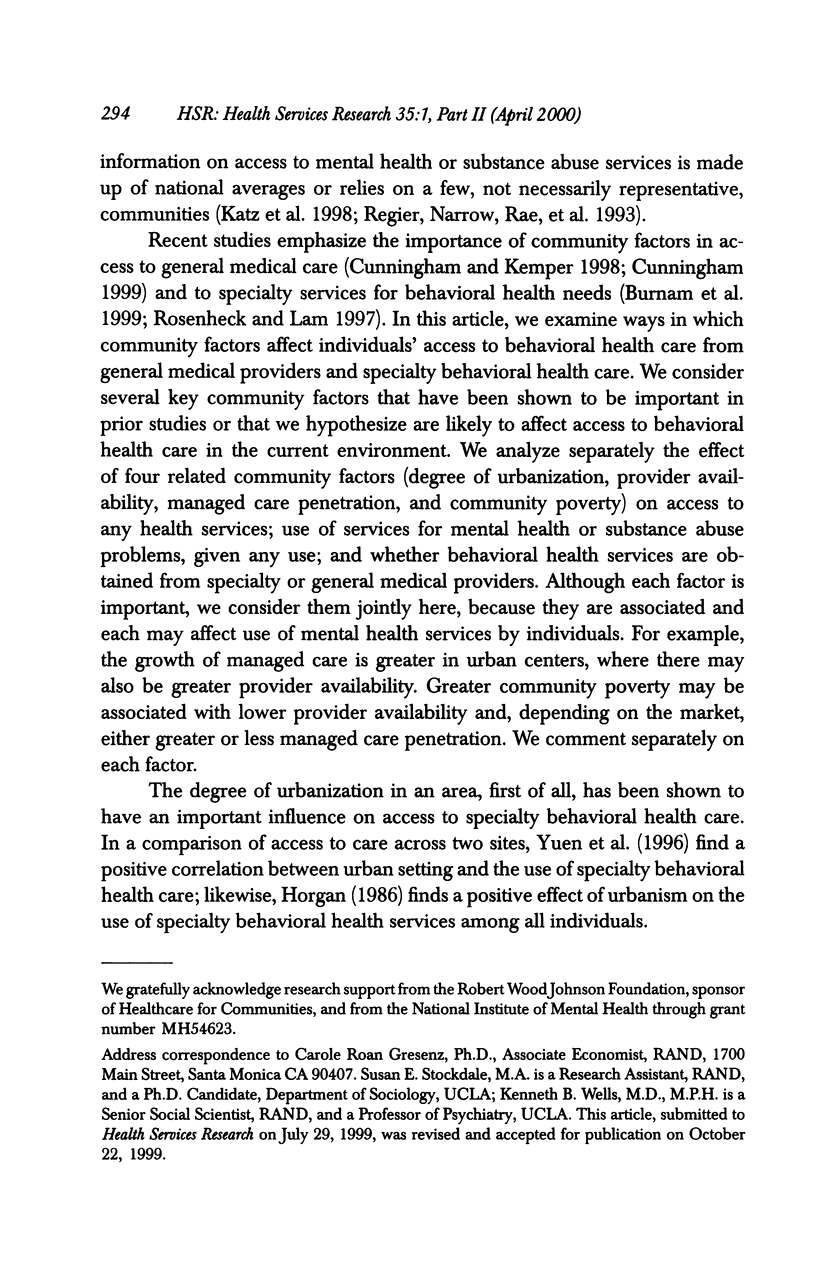
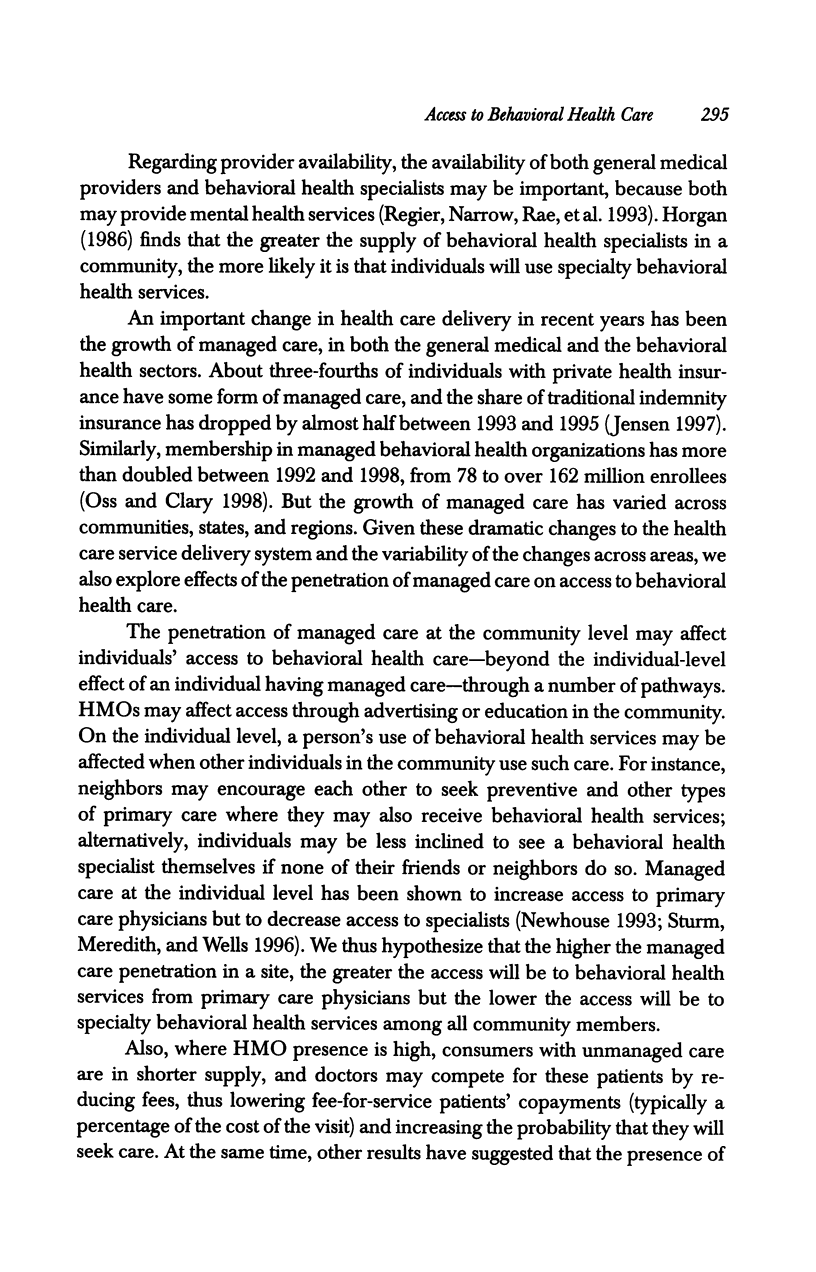
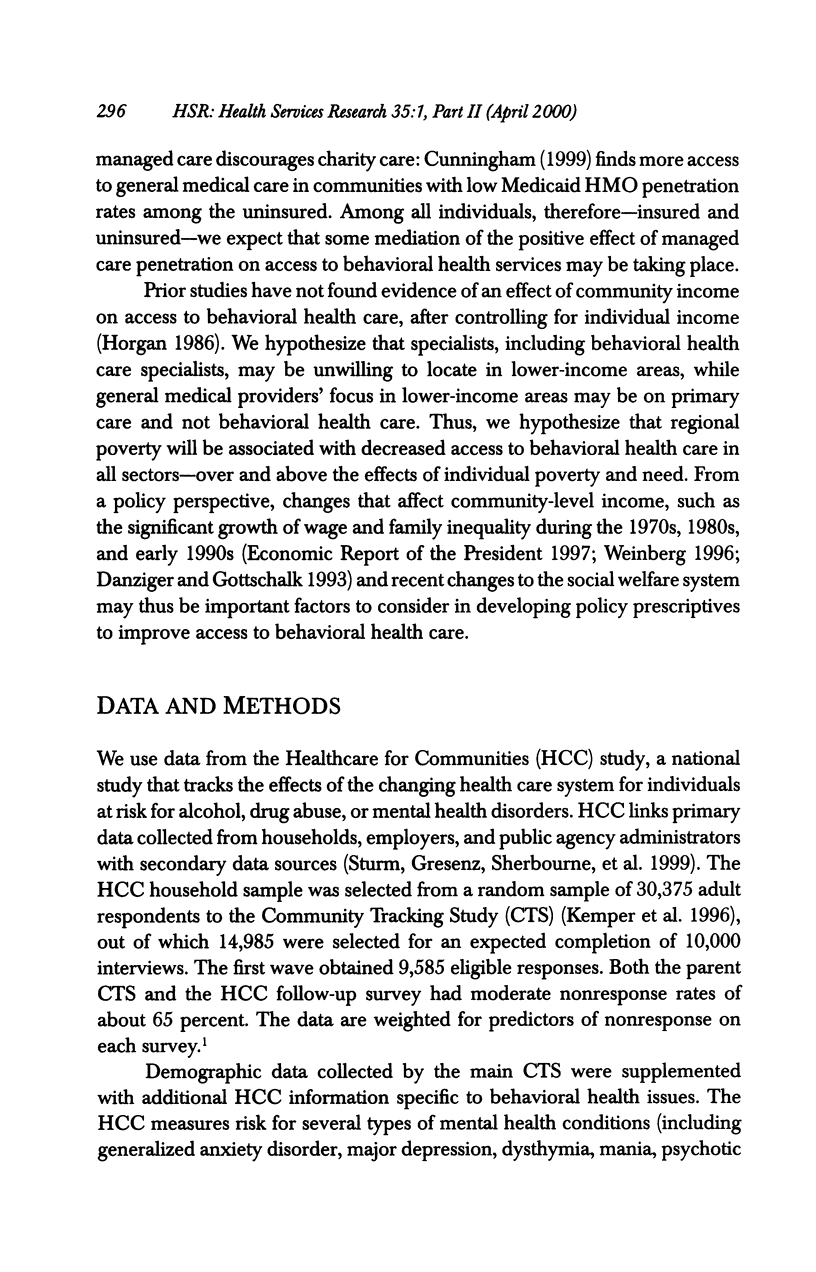
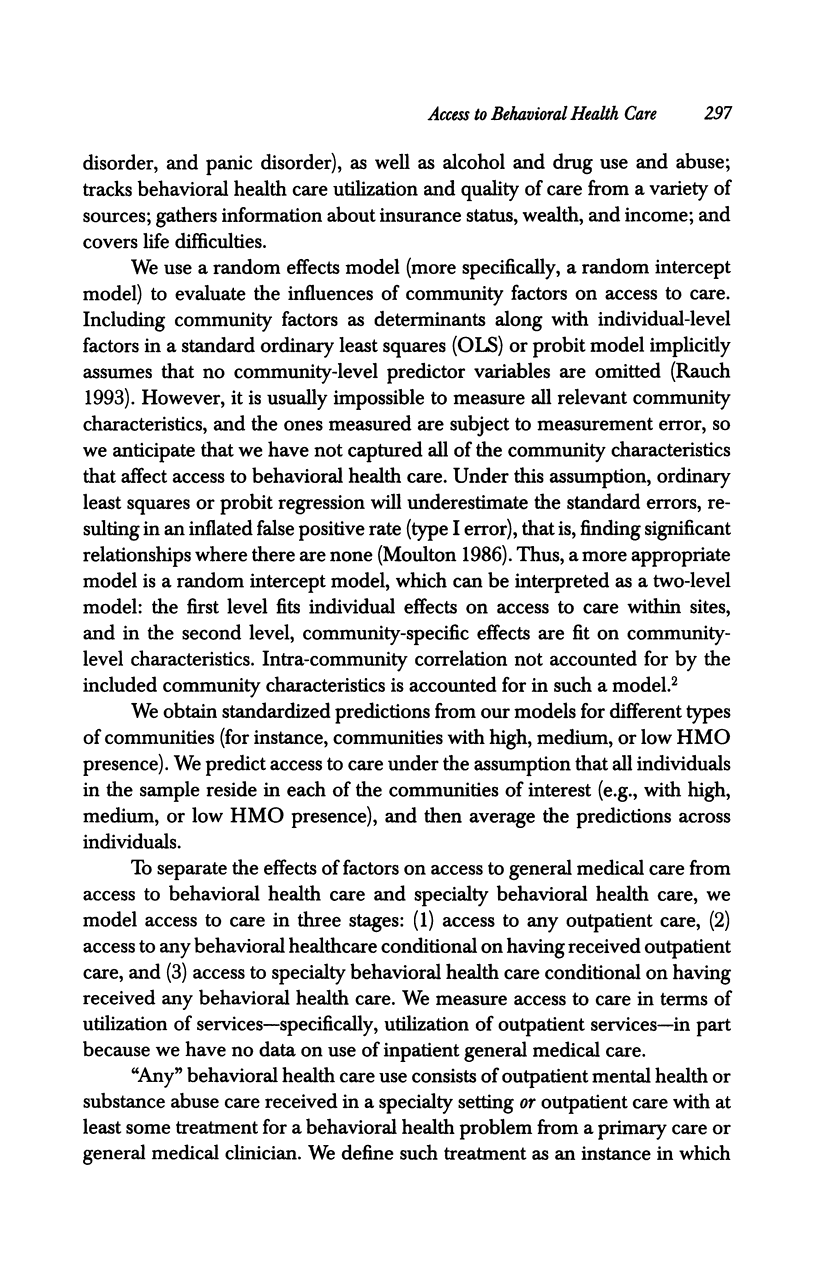
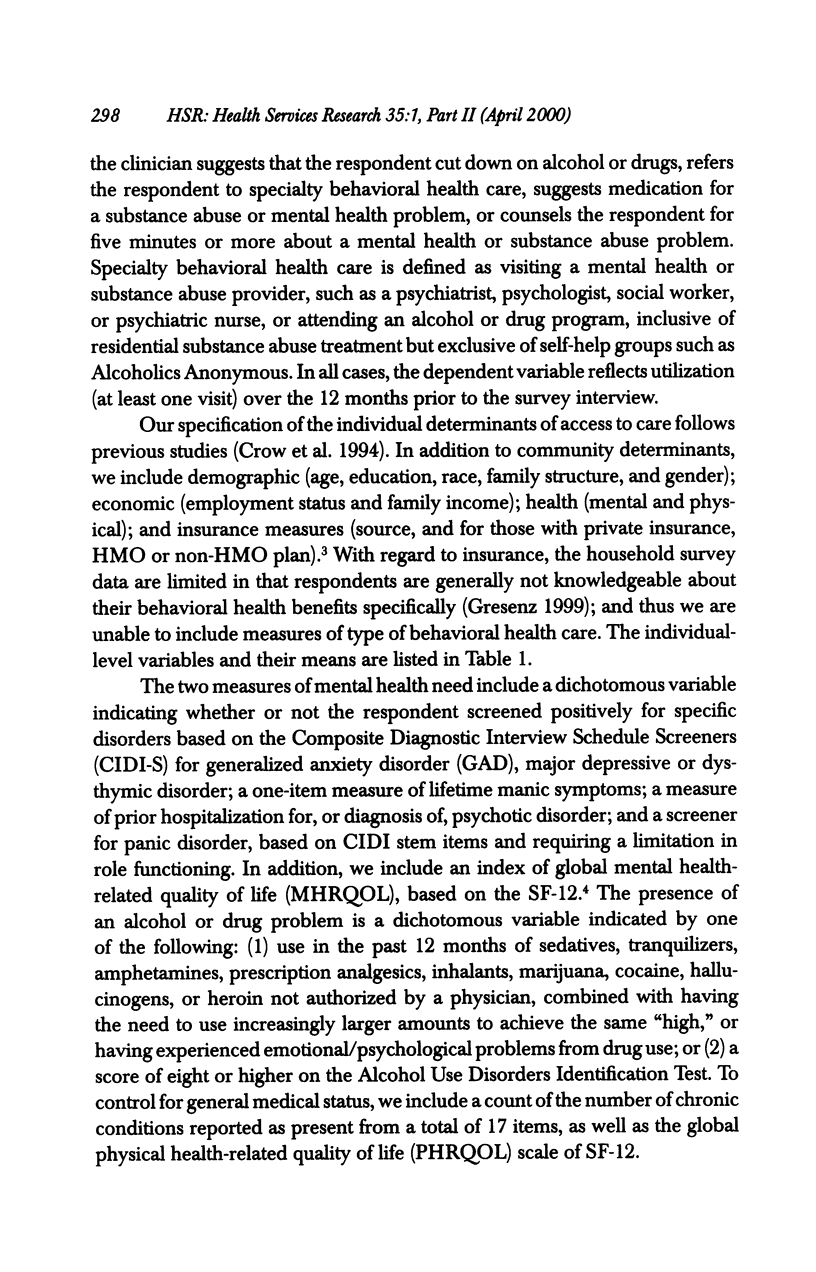
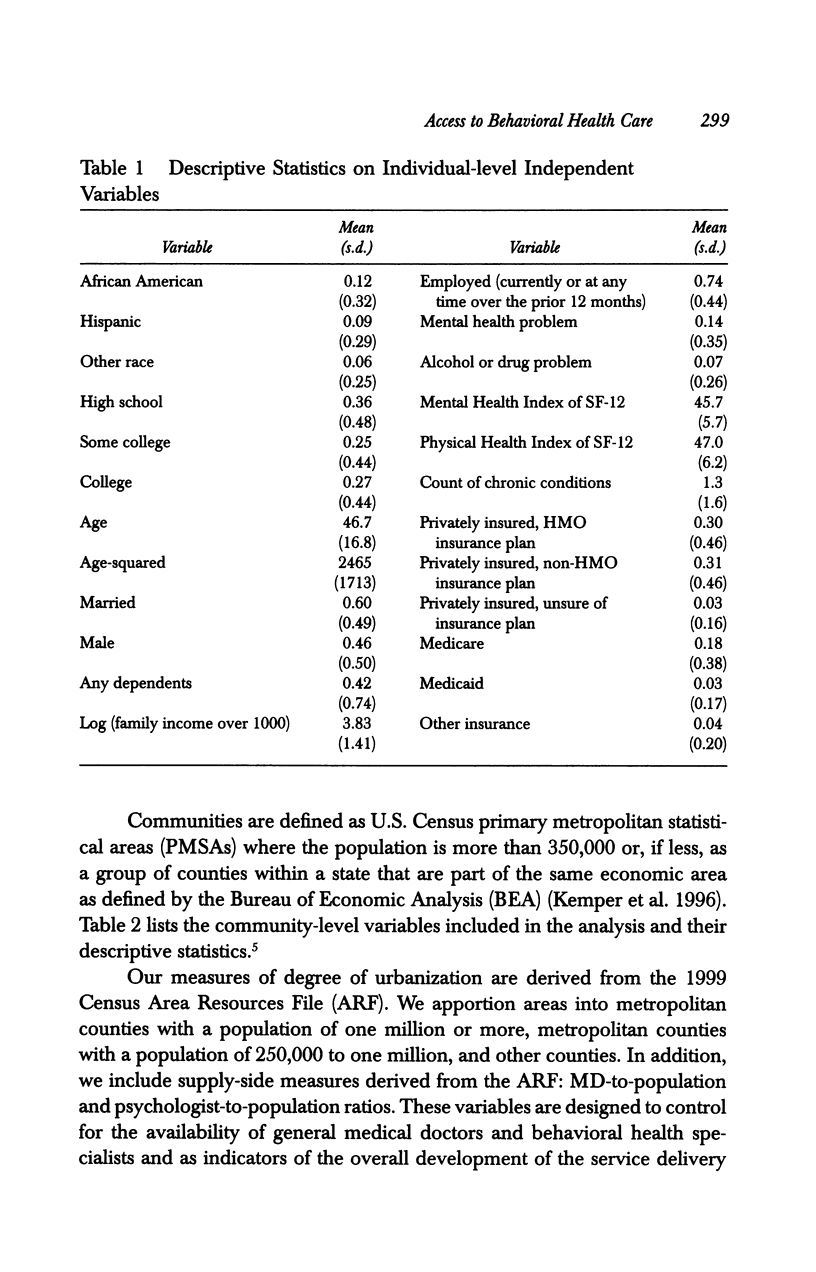
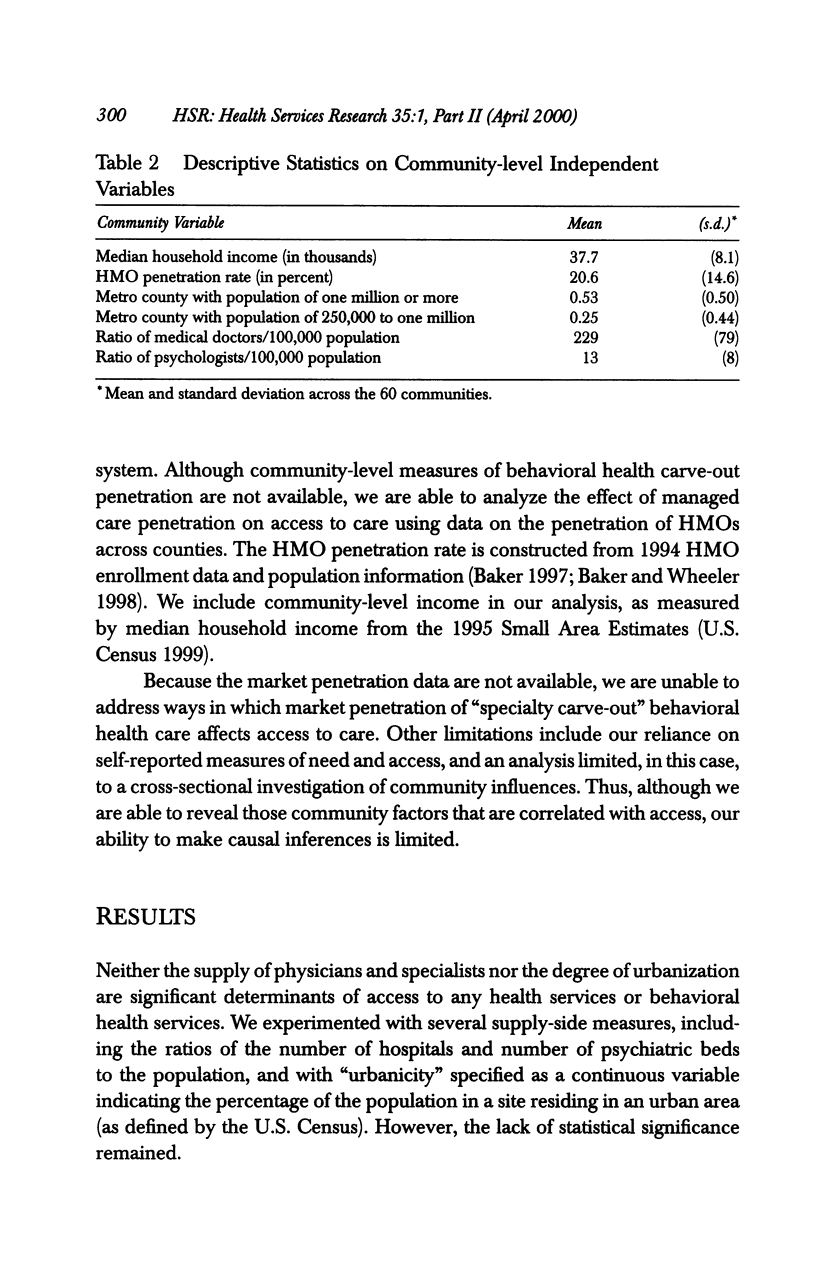
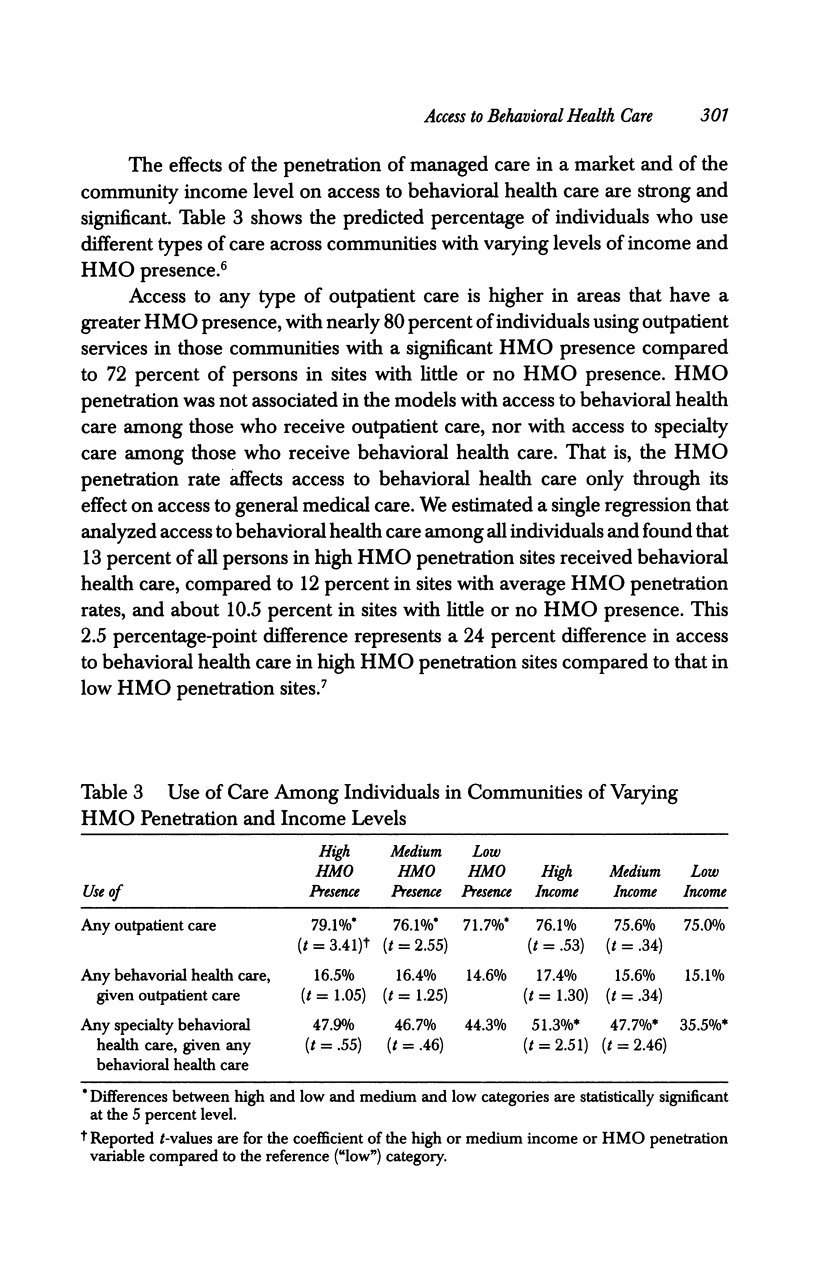
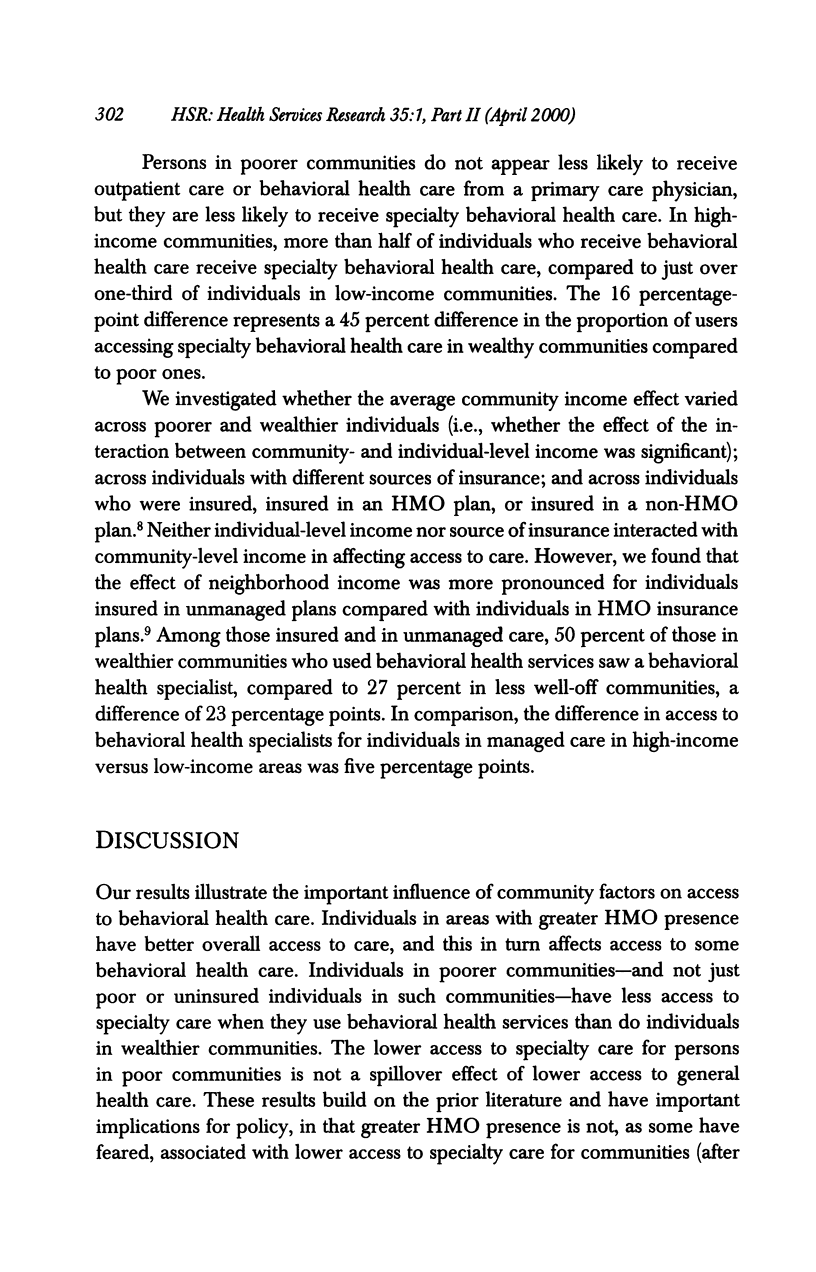
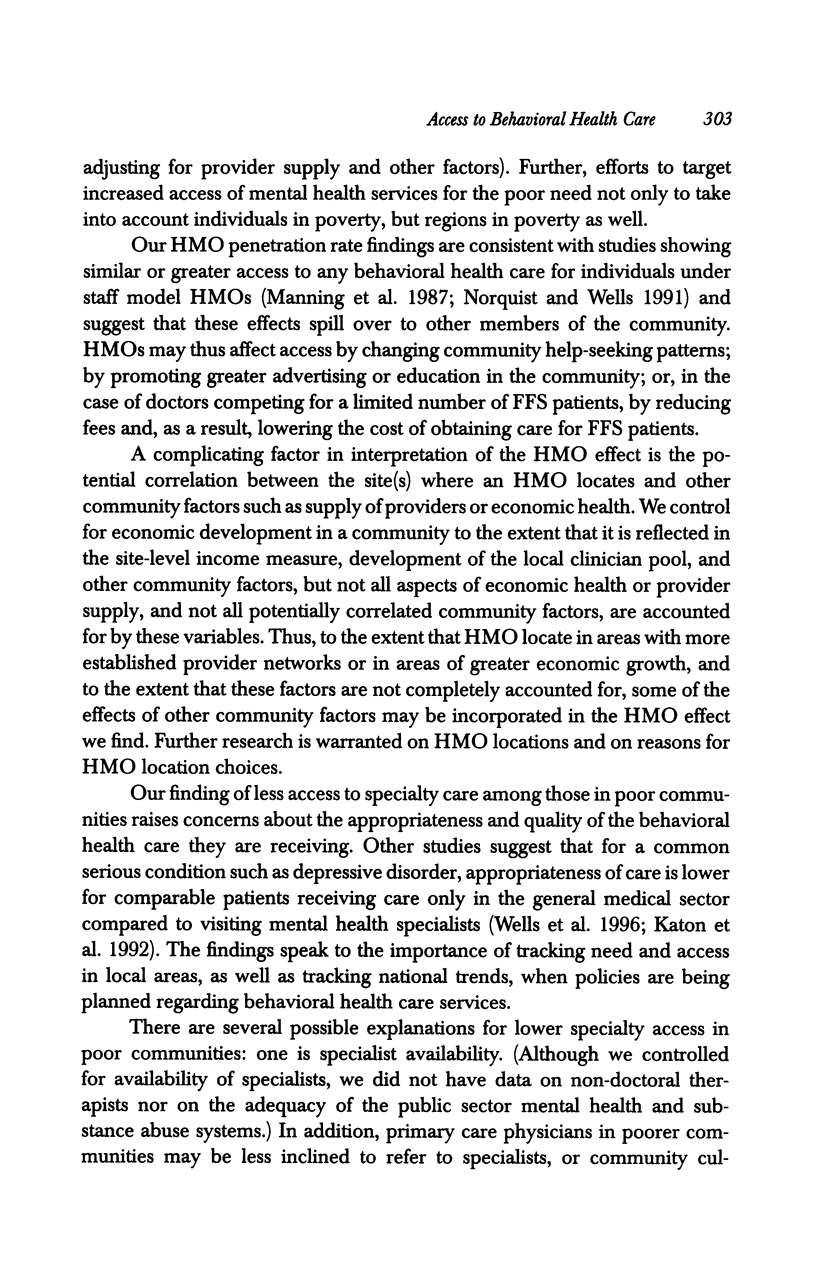
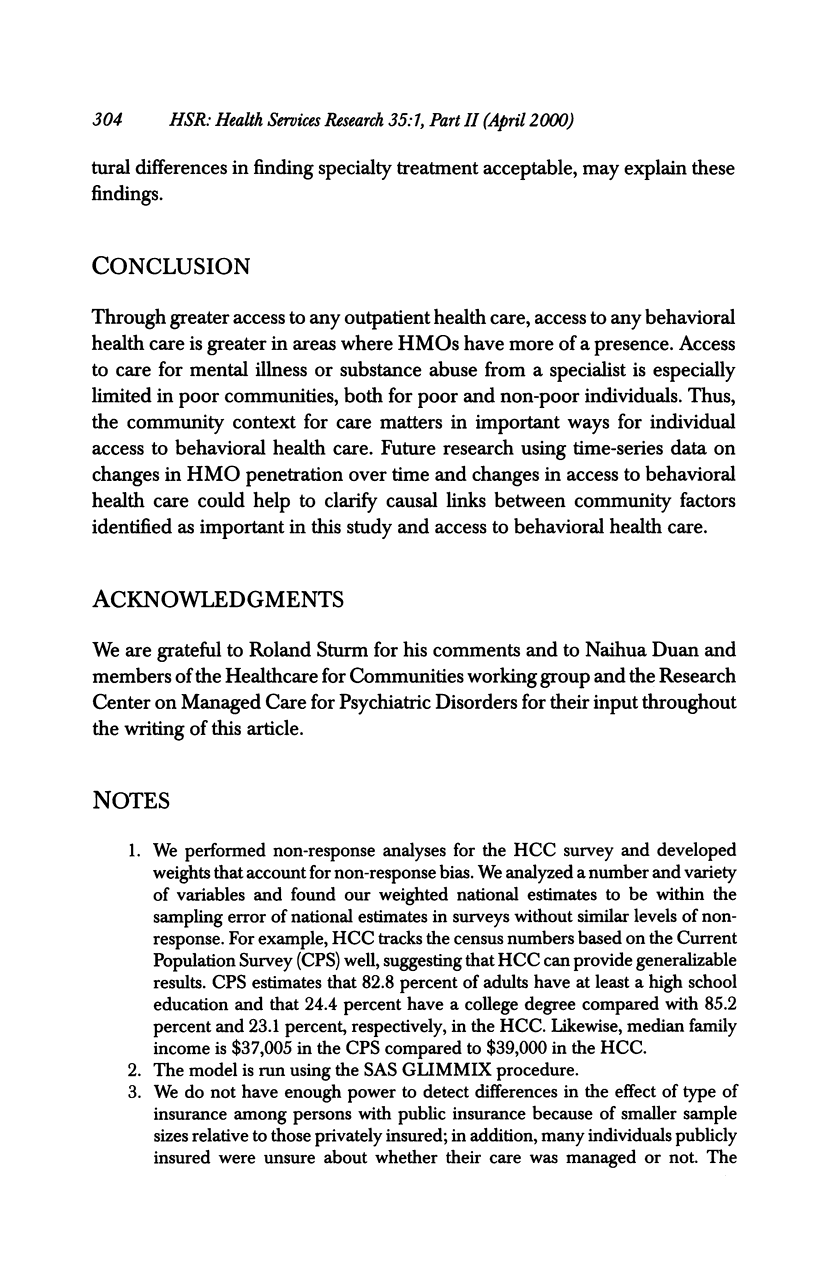
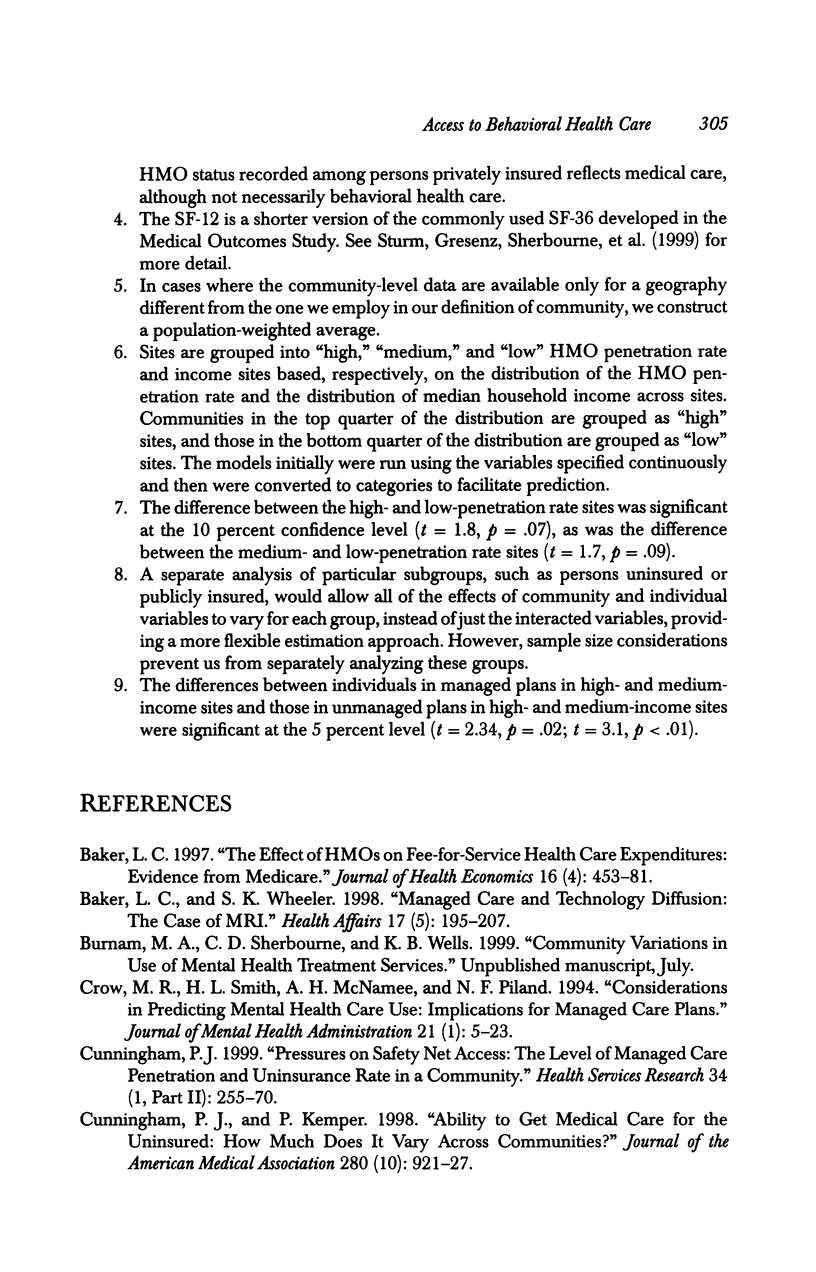
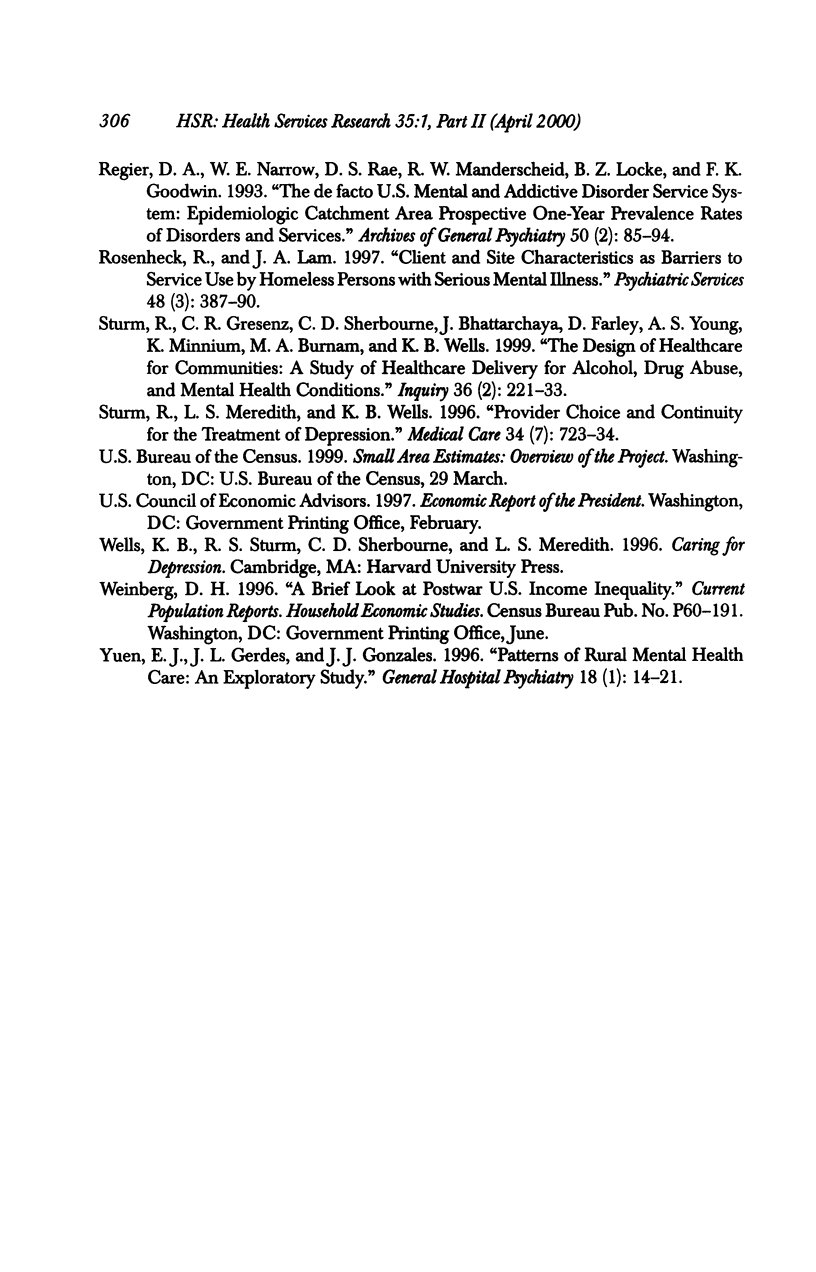
Selected References
These references are in PubMed. This may not be the complete list of references from this article.
- Baker L. C. The effect of HMOs on fee-for-service health care expenditures: evidence from Medicare. J Health Econ. 1997 Aug;16(4):453–481. doi: 10.1016/s0167-6296(96)00535-8. [DOI] [PubMed] [Google Scholar]
- Baker L. C., Wheeler S. K. Managed care and technology diffusion: the case of MRI. Health Aff (Millwood) 1998 Sep-Oct;17(5):195–207. doi: 10.1377/hlthaff.17.5.195. [DOI] [PubMed] [Google Scholar]
- Crow M. R., Smith H. L., McNamee A. H., Piland N. F. Considerations in predicting mental health care use: implications for managed care plans. J Ment Health Adm. 1994 Winter;21(1):5–23. doi: 10.1007/BF02521341. [DOI] [PubMed] [Google Scholar]
- Cunningham P. J. Pressures on safety net access: the level of managed care penetration and uninsurance rate in a community. Health Serv Res. 1999 Apr;34(1 Pt 2):255–270. [PMC free article] [PubMed] [Google Scholar]
- Regier D. A., Narrow W. E., Rae D. S., Manderscheid R. W., Locke B. Z., Goodwin F. K. The de facto US mental and addictive disorders service system. Epidemiologic catchment area prospective 1-year prevalence rates of disorders and services. Arch Gen Psychiatry. 1993 Feb;50(2):85–94. doi: 10.1001/archpsyc.1993.01820140007001. [DOI] [PubMed] [Google Scholar]
- Rosenheck R., Lam J. A. Client and site characteristics as barriers to service use by homeless persons with serious mental illness. Psychiatr Serv. 1997 Mar;48(3):387–390. doi: 10.1176/ps.48.3.387. [DOI] [PubMed] [Google Scholar]
- Sturm R., Gresenz C., Sherbourne C., Minnium K., Klap R., Bhattacharya J., Farley D., Young A. S., Burnam M. A., Wells K. B. The design of Healthcare for Communities: a study of health care delivery for alcohol, drug abuse, and mental health conditions. Inquiry. 1999 Summer;36(2):221–233. [PubMed] [Google Scholar]
- Sturm R., Meredith L. S., Wells K. B. Provider choice and continuity for the treatment of depression. Med Care. 1996 Jul;34(7):723–734. doi: 10.1097/00005650-199607000-00005. [DOI] [PubMed] [Google Scholar]
- Yuen E. J., Gerdes J. L., Gonzales J. J. Patterns of rural mental health care. An exploratory study. Gen Hosp Psychiatry. 1996 Jan;18(1):14–21. doi: 10.1016/0163-8343(95)00099-2. [DOI] [PubMed] [Google Scholar]


